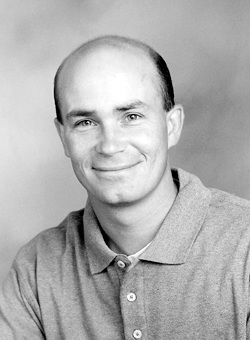Smaller Bites of Business Feed Catering Company
by November 30, 2011 5:42 pm 103 views

How did one of Northwest Arkansas’ leading caterers celebrate Thanksgiving once he made sure all his clients enjoyed their turkey and trimmings?
“Every year, at the end of the day, after we’ve served everybody else,” Mark Henry said, “we all go home and eat pizza. That’s our Thanksgiving tradition.”
Henry, owner of Springdale-based Catering Unlimited, said it’s not the fact he’s tired of turkey by the time Thanksgiving rolls around that leads to his nontraditional meal. This, despite the fact Catering Unlimited will prepare and serve 150 to 175 large turkeys this holiday season.
“When you spend all day working,” Henry said, “you just don’t have time to come home and make a big meal of your own.”
And that’s OK with Henry, who does manage to celebrate Christmas with a sizable — and traditional — holiday meal. Henry sometimes even adds a personal favorite like prime rib to go with the ham and turkey and other staples.
Henry, who was part of the Northwest Arkansas Business Journal’s 1999 Forty Under 40 class, has been part of the food industry since he was a student at the University of Arkansas. By the time he graduated with a degree in communications in 1990, in fact, Henry was so immersed he eventually took a job as a manager at Café Santa Fe in downtown Fayetteville rather than hunt for the kind of sales or marketing job he once thought was his future.
Henry later worked as a co-owner of Jake’s Grill in Springdale and general manager at AQ Chicken House — also in Springdale — before getting his first taste of the catering business. That came in the form of AQ’s catering division.
After some time working in that capacity, Henry decided to launch his own catering company in 2002. The move resulted in “huge fear,” he said.
“The only future I had was what I could create on my own,” Henry said.
In its first year, Catering Unlimited generated $100,000 in gross sales, Henry said.
“Eight years later, we did $1.4 million,” he added.
The biggest key to Catering Unlimited’s success, Henry said, is its people.
“Great employees are what keep me running,” he said.
During the holiday season, which usually starts around the second week of November and runs through Christmas Eve, Henry and his staff often work 65 to 80 hours per week. That’s what happens when Henry demands each turkey be smoked and hand-pulled before serving as part of his commitment to top-shelf service.
“Everybody knows the holiday has started when they see me come in with 100 large turkeys,” Henry said with a laugh.
The hard work is balanced by a family atmosphere, Henry said. All but three of his core employees have been with him since the beginning.
The holiday jobs come in addition to “everything else we do on a regular basis,” Henry said. Lately, he said, “everything else” has changed.
Like some of its competitors, Catering Unlimited relied largely on corporate gigs as late as 2006 and 2007. When the first signs of a recession appeared, though, Henry said he quickly shifted gears.
“We had to change our attitudes as far as what types of clients we went after,” he said.
That means more small events, ranging from 50 to 150 people. The overall number of events Catering Unlimited has handled, in fact, has risen about 20 percent over the last 18 months, Henry said.
Those kinds of events have been critical in keeping Catering Unlimited on a growth pattern during the economic downturn.
“There’s always going to be weddings, there’s always going to be family events and family reunions,” Henry said. “Now we look at softball teams or baseball teams or whatever that come into town for tournaments. They have to eat.
“Those things don’t go away because of the recession.”
Henry said he even increased his full-time staff to 10 employees last winter, which typically is a slower time for caterers. And with some corporate business starting to trickle back in, Henry said Catering Unlimited is poised to take advantage, bolstered by the biggest lesson he’s learned during his career: “Treat people well and make people happy.”
Ten years from now, Henry said, he hopes to be “doing the same thing, but with 10 times more volume. I’d also like to employ 10 times my current work force, and help the community that way.
“We don’t want to slow down or get complacent. We want to grow.”
